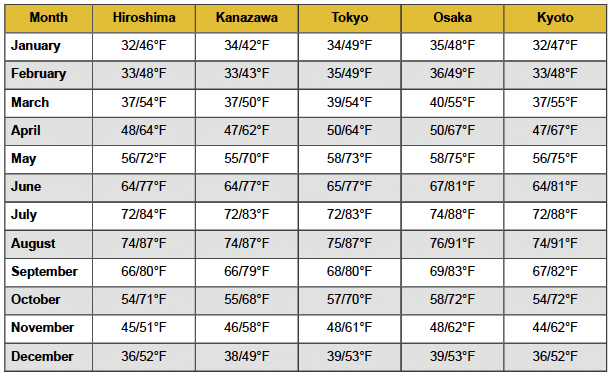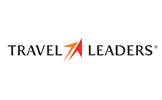JAPAN

Fun Facts From Globus Tours
-
-
- Japan is 70% mountains.
- Japanese food is considered the most nutritious in the world.
- The crime rate in Japan is among the lowest in the world.
- Vending machines in Japan sell beer, hot and cold canned coffee, cigarettes, and other items.
- Japan has an almost 100% literacy rate.
-
Travel to a world of unprecedented variety and deeply-entrenched culture – Japan’s history and people date as far back as the 1st century AD; its spiritual history, friendly nature, unique cuisine, and its ancestrally influenced art are just a few of the qualities that make this country a phenomenal place to visit – to witness a truly time-honored place unlike any other in the world.
With a blend of natural beauty and cosmopolitan cities Japan has something for everyone. Explore Mount Fuji and peaceful Japanese gardens. Traverse the rugged Japanese Alps and travel on a famed bullet train. Delve into Japan’s ancient history in Kyoto and go for a walk in Tokyo to witness the frenetic but pleasant vibe of this city. By the end of your journey you’ll begin to realize the power of a culture that is hard-working, fun-loving, but deeply rooted in tradition and influenced by a peace that seems to be channeled by their ancestors. It is a true wonder.
VISAS, PASSPORTS, AND OTHER ENTRY REQUIREMENTS
You are responsible for obtaining and paying for all entry documents (visas, etc.) and for meeting all health requirements (inoculations, etc.) as required by the laws, regulations, or orders of the countries you will visit. We cannot accept liability if you are refused entry onto any transport or into any country for failure to carry correct documentation.
A visa for your visit to Japan is not necessary for US citizens. If you hold a passport from another country, check with your local consulate about requirements for travel to Japan.
All passengers traveling internationally are required to have a passport. Most countries require that the passport be valid for at least six (6) months beyond the conclusion of your trip, so please check the expiration date carefully. It is also recommended you have a minimum of three blank pages in your passport when traveling, as many countries require blank pages. Please carry proper identification (your passport) on you and do not leave it in your suitcase or hotel room. Most countries have laws that require you to carry your passport with you at all times.
COUNTRY CODES
The country code for Japan is 81. When calling to Japan from overseas, dial your international access code (011 from the US/Canada), followed by the country code, area code, and phone number. Phone numbers in Japan are 9 digits in length. Dialing from the US/Canada: 011 81## ### ####.
CURRENCY
In Japan the local currency is the Japanese Yen.
-
-
- Banknote denominations: ¥1,000, ¥2,000, ¥5,000, ¥10,000
- Coin denominations: ¥1, ¥5, ¥10, ¥50, ¥100, ¥500
-
As a general guideline, bring a variety of payment means, particularly in the event that you have difficulties with your preferred method of payment.
Cash
For initial convenience we recommend you bring some Yen with you from home in case you are not able to immediately access a money exchange or ATM. Keep a supply of smaller denomination notes or coins for water or tips.
ATMs are a convenient way to obtain money in Japan but not all ATMs accept foreign bank cards. To find an ATM that accepts international bank cards, look for a post office or 7-11 convenience store.
For the most current exchange rates, please go to our website at Globusjourneys.com/Currency.
Credit Cards
Credit cards are accepted in Japan, though not widely popular outside of hotels. Visa and MasterCard are most accepted. Smaller shops may ask you to pay in cash or have a minimum amount required to use a credit card. If you use a credit card for your purchase, you will be debited in the local currency, and your bank will establish the rate of exchange on the debit.
Traveler’s checks
Although a secure means of carrying money, traveler’s checks unfortunately are becoming very hard to use. Due to this we recommend you plan on using cash and credit cards only.
Bank Hours:
Mon. – Fri. 9am – 3pm
Sat. – Sun. Closed
BUDGETING AND SHOPPING
The following budget guidelines are just approximate values or starting values for meals and are per person.
Actual prices will vary widely by restaurant and city within a country but below are some averages as provided by our experienced personnel.
- The approximate cost of a soft drink/mineral water/coffee is ¥500-600 in a hotel or as little as ¥100 outside.
- An average lunch consisting of a salad or sandwich and a soda or water will cost approximately ¥1,000-1,800 inside a hotel and ¥500 outside.
- Dinner at a mid-range restaurant, with dessert and a non-alcoholic beverage will cost approximately ¥3,500-4,500.
Shopping
Shops and other sales outlets in Japan are generally open on Saturdays, Sundays and national holidays as well as weekdays from 10 a.m. to 8 p.m. Department stores, however, are closed during one weekday, differing by store, and certain specialty shops may not open on Sundays and national holidays. Please note that department stores close at least one hour (7 p.m.) earlier than most other stores.
Prices are as marked in stores and bartering is not customary as it is in other parts of Asia.
Please be warned that if you buy items on tour to be shipped to your home, customs import charges are hardly ever included in the price. Sales tax or GST (Goods & Services Tax) is normally already included on price tags; GST refunds, if applicable, are processed at the departing airport from the relevant country.
TIPPING
Tipping is not common in Japan and many Japanese people are uncomfortable with being tipped. Wait staff, taxis and hotel personnel do not expect to be tipped. At times, a gratuity may be added to your bill, but no additional tips are necessary.
ELECTRICITY AND ELECTRICAL OUTLETS
Voltage for outlets is 100V. North American voltage is generally 110V. Outlets are common North America outlets without the ground. In general U.S. electronics should not require an adaptor or converter but it is best to double check the back of each charger you will be using. Three prong plugs are not common.
Japan’s climate is generally temperate with four distinct seasons.
- Spring & Fall – mild temperatures and little to no rainfall
- Summer – warm & humid with some rain from July to August
- Winter – snow can be found in the mountains but in cities like Tokyo, Kyoto, and Hiroshima days are mostly sunny with temperatures rarely dipping below freezing
TEMPERATURES
To help you plan, below are average low and high temperatures.

To convert to Celsius, subtract 30, then divide by 2. While not exact, this simple formula will give a close estimation.
FOOD SPECIALTIES
Popular dishes in Japan include: Yakitori – grilled chicken on skewers seasoned with salt and sauce often made from soy sauce, mirin, sugar and honey. Sushi – there are several types of sushi but all include white rice seasoned with rice vinegar and raw fish or seafood. Shabu Shabu – Japanese style hot pot where thinly sliced seafood, meat, vegetables, and tofu are cooked in a spicy soup. The pieces are then dipped in one of a variety of sauces. And you get to cook it yourself at the table!
Drinking Water
Tap water is generally safe to drink in Japan. For sightseeing and excursions, we recommend you purchase bottled water to bring with you. Bottled water is also common in restaurants.
CUSTOMS AND CULTURE
- Remove your shoes when entering a Japanese-style restaurant, temple, or home.
- Never place your chopsticks upright or vertical in your bowl, as it looks too similar to burning incense in honor of deceased family members. Instead, place them on the chopsticks holder or across your bowl if a holder is not available. Do not use your chopsticks to stab food like a spear
-
- Smoking is common in Asia so locals tend to be less sensitive to issues regarding smoking around others and often ignore “non- smoking” signs.
-
FEW WORDS OF THE LOCAL LANGUAGE

Japanese:
Good morning/day: Ohayou-Gozaimasu/Kon-nichiwa, Good evening: Kon ban wa, Hi, Please: Onegai Shimasu, Thank you: Arigatou Gozaimasu, You’re welcome: Dou itashi mashite, Yes: Hai, No: Iie, Do you speak English? Eigo wo hanase masuka?, I don’t understand: Wakari masen, How much? Ikura desuka?, 1: Ihi, 2: Ni, 3: San, 4: Shi, 5:Go, 6:Roku, 7: Nana, 8: Hachi, 9: Kyu, 10: Juu, Where is…? Doko desuka…?, Telephone: Denwa, Bathroom: Ote arai, Tea: Ocha, Coffee: Kohi, Bottled water: Botoru no mizu (carbonated=tansansui, non-carbonated=futsuu no mizu), Cheers! Ogenkide!, Have a nice day! Yoi hi wo!
U.S. DEPARTMENT OF STATE COUNTRY INFORMATION
Additional country-specific information for US citizens can be found on the US Government’s website www.travel.state.gov. Here, you can find the most up-to-date information about destination descriptions, passports/visas, safety and security, transportation, travel local laws, alerts/warnings, vaccinations, and more. For citizens of other nations, we recommend you consult your local consulate for travel information, regulations, and requirements.













